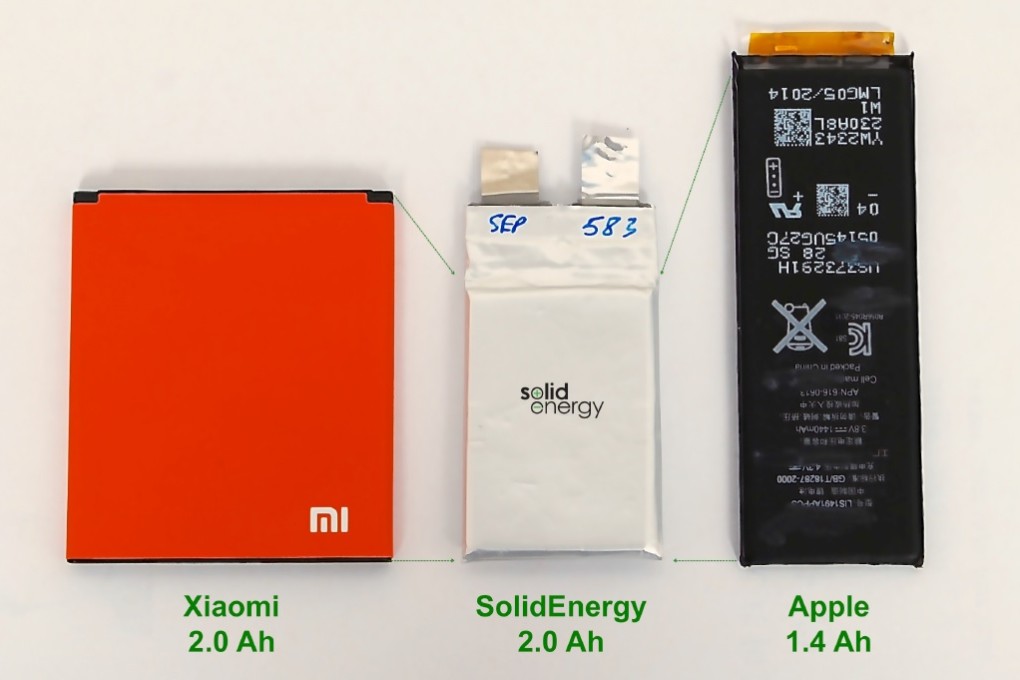Out of juice? New battery technology could help smartphones last twice as long
Smartphones that last twice as long before they need to be recharged could become reality after a US tech start-up revealed a portable battery with double the capacity of those on the market.

Smartphones that last twice as long before they need to be recharged could soon become reality after a US tech start-up revealed a portable battery with more than double the capacity of those currently on the market.
Run by Chinese-American Qichao Hu, US firm SolidEnergy’s Solid Polymer Ionic Liquid (SPIL) lithium battery’s prototype cells (2Ah) demonstrated a world record 1,337 Wh/L energy density in tests, according to A123 Systems, a battery manufacturing company that also provides test and validation services.
SolidEnergy said the energy capacity per volume is more than twice that of conventional lithium-ion batteries currently used in most portable electronic devices, such as smartphones. Most smartphone batteries on the market have an energy density of less than 600 Wh/L.
Batteries made with SolidEnergy’s technology could therefore potentially last twice as long as current batteries of the same size, or take up only half the room.
“We are hoping to disrupt more than 20 years of domination of the consumer electronics and electronic vehicle industries by traditional li-ion batteries,” Hu, CEO and founder of SolidEnergy, told the South China Morning Post. “We are confident our products could lead the next battery revolution that opens a new era in the next 20 years.”

Hu, named by Forbes as one of the 30 most important innovators in the energy industry aged 30 or under, said the technology can be applied to batteries used in smartphones and smart watches in the near future, and electric cars in the long run. His company aims to commercialise the technology by selling it to battery manufacturers who supply major electronic device makers around the world.